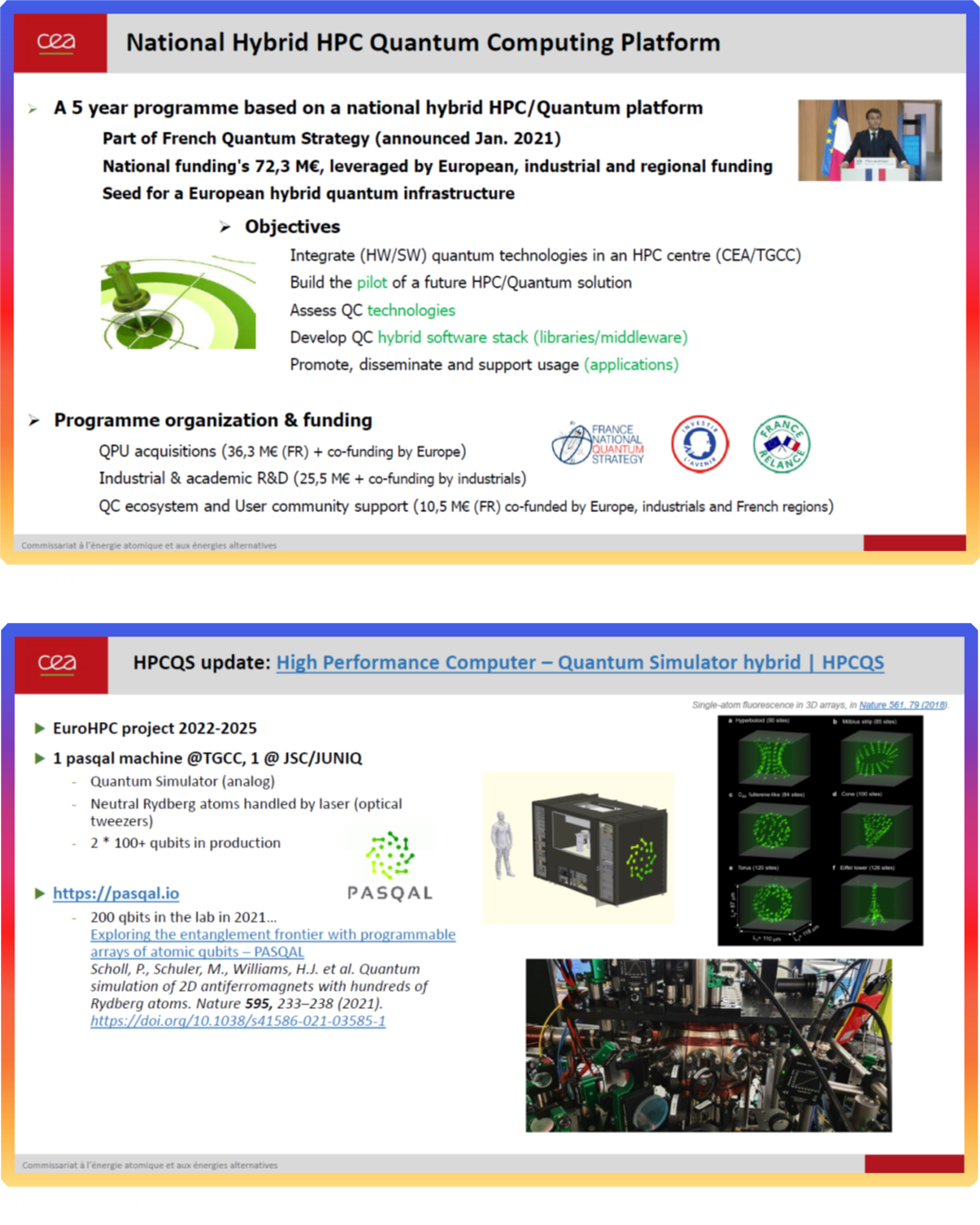HPCQS highlighted during Forum TERATEC 2022 in France
During the second day of Forum TERATEC 2022 (June 14-15, Palaiseau, France), a workshop organised and moderated by Dr. Guillaume Colin de Verdière and Dr. Jean-Philippe Nominé from CEA was introduced by an overview of the French HQI programme (hybrid HPC-Quantum platform and related research) and its articulation with HPCQS.
HQI aims at the deployment of a selection of quantum computing accelerators at CEA TGCC, in the next five years, coupled to HPC systems, with the development of a full-fledged software stack and user friendly environment (for academic and industrial users). HPCQS will provide the first equipment of this project, co-funded by EuroHPC and HQI: a Fresnel quantum simulation system from Pasqal company, acquired by GENCI and meant to be installed aside, and coupled to GENCI’s Joliot-Curie supercomputer operated at TGCC (while a similar system will be deployed at Jülich JSC). The joint expertise of HPCQS partners will help develop the software environment. HPCQS is a key element on the path to building and delivering integrated high-performance quantum computing and simulation federated infrastructures at the European level. HQI programme intends to leverage this effort and pursue efforts to further align with EuroHPC plans in this area.

The “What's new with qubits? A European view” workshop was attended by 80 participants. Following a series of quantum computing workshops at TERATEC since six years, this edition scrutinised various qubits technologies, and their integration into computing systems, with a selection of French and European SMEs among the most promising ones. Undoubtedly world leaders of tomorrow will emerge from these SMEs, all already players at the forefront of innovation, covering almost the entire spectrum of technologies of interest.
The various speakers explained the paths they were taking to qubits, and the possible related first use cases. This overview encompassed various approaches, their promises, limitations and maturity, in addition to Pasqal’s one – optically controlled cold atoms: nitrogen-vacancy centres in diamond, superconductors, cat qubits, carbon nanotubes, reconfigurable photonics. If the universal quantum computer seems far away still, paths do exist, and some solutions are already taking shape for “noisy” NISQ computers, of intermediate qualities and capacities. Technological SMEs all work with pioneering users on use cases, particularly industrial ones, which suggests concrete tests might take place in the near future, a step towards understanding the real contributions of quantum technologies to computing.




